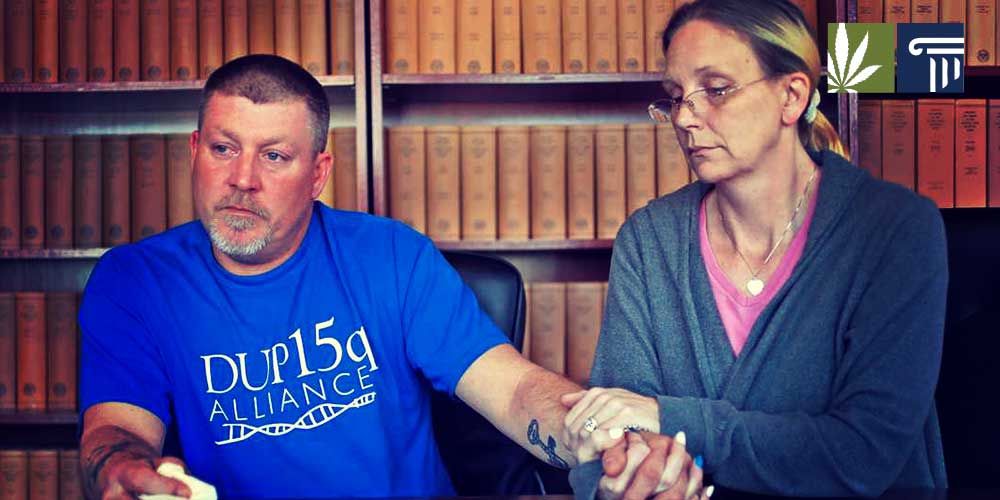Indiana parents Heidi and Dave Curtis’ six-year-old daughter, Charly, died last month after her heart stopped due to an intense seizure. The girl had autism and suffered from epilepsy.
Since last year, Charly was on Keppra, an anti-seizure medication which initially improved her condition.
“Charly was very happy,” Heidi said. “She was learning. She didn’t walk until she was 2. She didn’t talk until she was 4. Little-by-little, she was gaining skills. Things were going really well. As long as we could keep the seizures away, she could learn.”
However, in January, Charly had her first grand mal seizure, which causes loss of consciousness and muscle contractions.
She was diagnosed with Lennox-Gastaut Syndrome after suffering from more seizures. The syndrome is a type of epilepsy that manifests itself in different types of seizures and thus requires various types of medications.
THC suppressed the seizures
Charly’s parents decided to put her on Epidiolex, a new drug that contains CBD. As the paperwork and approval process was taking too long, they opted to give Charly THC.
After the girl ate a small bite of a THC brownie, her seizures subsided.
“There were no more seizures that day,” her mom said. “We gave her a pinch the next morning. No seizures — that entire Saturday.”
Thinking the seizure-free spell may be coincidental, they didn’t give her any any on the following Monday. On that day, she had two grand mal seizures before noon.
Heidi and Dave started giving her two milligrams of THC oil per day, which they purchased from somebody returning from Colorado.
“We knew we were already giving her something that was illegal in the State of Indiana,” Heidi said. “We knew that the medicine that we were giving our daughter to help her could land us in jail. It could land us in a CPS case for child neglect. All those risks were worth it if we could help her — if we could save her from this seizure demon.”
According to her mom, Charly would still occasionally have seizures but their intensity considerably decreased.
They informed the doctors that the THC oil was helping Charly.
“I believe the comment was, ‘You do what you gotta do,’” Heidi said.
The child’s behavioral therapist confirmed it did make a difference.
“She was a happier, calmer child,” Heidi said. “She wasn’t getting frustrated so much.”
Charly’s parents wanted to ensure she received the same strain that had proven effective. So after running out of THC oil, Dave drove overnight on Feb. 6 to Colorado to get more.
But soon after arriving on the morning of Feb. 7, Dave received a call from Heidi who had just found Charly unresponsive. She was taken to a hospital, where she was pronounced dead 40 minutes after Heidi first found her in her bedroom.
An autopsy and pathology report revealed that Charly went into status epilepticus, which means that many seizures occur too close together to give the patient time to recover in between.
“I know it was quick, and I know she didn’t feel anything, but I honestly think that if we had given her a higher dose of THC, or even gave her a dose before bed that night, that it might have stopped it,” Heidi said. “It might’ve made a difference. But we had no guidance on how much of this to give her.”
Now, Dave and Heidi advocate for legalization of medicinal marijuana in Indiana. They believe knowing the exact dosage they should give Charly could’ve helped her.
They’re pushing Indiana lawmakers to support legalization to help people like Charly.
Rep. Jim Lucas, R-Seymour, is one of the most outspoken state lawmakers on the issue. But he can’t say how long it could take to legalize medical marijuana in Indiana.
“Who knows? That’s the frustrating thing,” Lucas said. “We have the data, we have the research, we have the evidence, we have the personal stories that it works, but somehow we have people in our state leadership that just will not get away from their personal bias.”
Gov. Eric Holcomb has been one to push back against the question of legalization. He argued that Indiana is simply following the federal law.
“If the law changed, it should change by being informed itself,” Holcomb said last week. “Not allowing some hodgepodge national effort to organically spring up because some folks are looking the other way. This would require medical research and science.”
Two of Indiana’s neighboring states, Ohio and Illinois, have already legalized medicinal marijuana, while Michigan allows recreational use.
Despite Holcomb’s opposition, Heidi and Dave keep fighting.
“Charly’s voice needs to be heard,” Heidi said. “And once that story’s out there far enough, if I can change just a few minds, if I can save one life, then the entire fight is worth it.”






